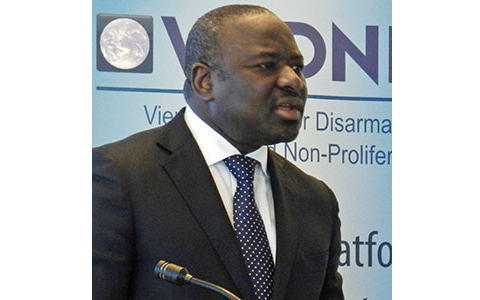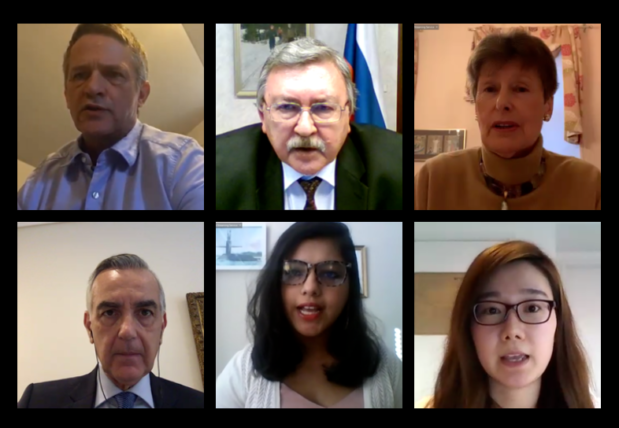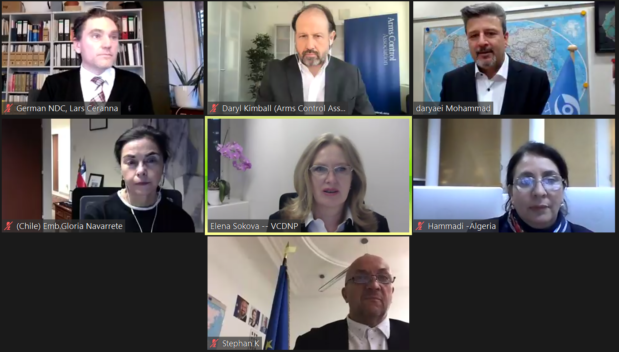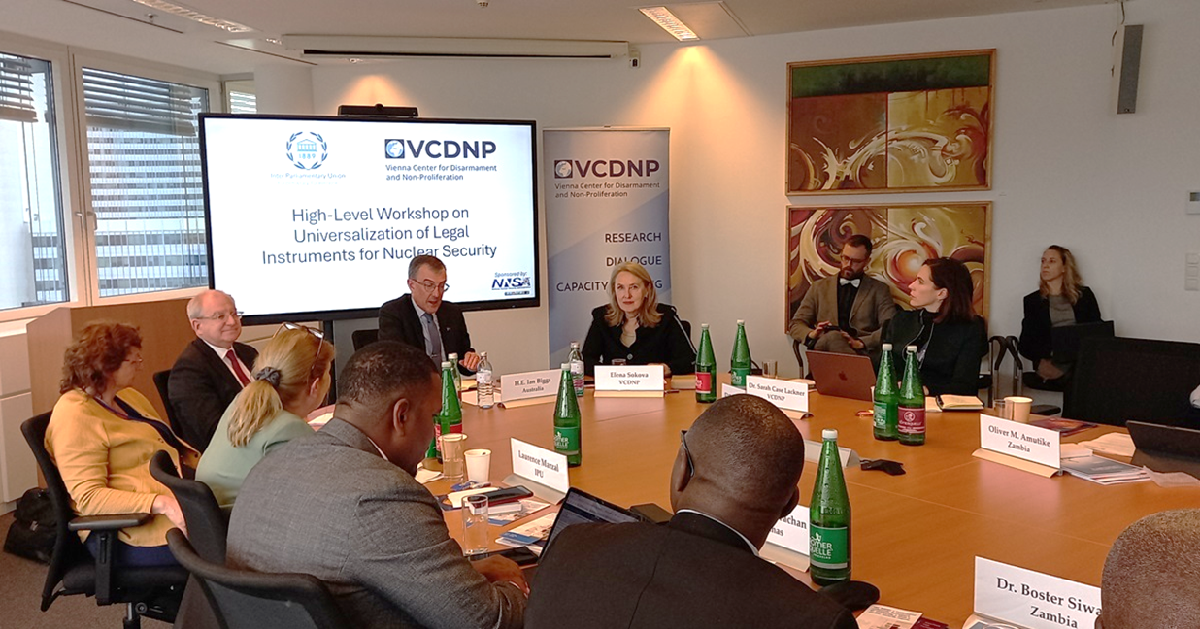
The Comprehensive Nuclear-Test-Ban Treaty (CTBT) is approaching the 25th anniversary of its opening for signature. While the treaty is not yet in force, the establishment of its monitoring and verification regime is nearing completion, and the treaty embodies a global norm against nuclear testing. On 28 Jan 2021, the VCDNP organized a high-level event in cooperation with the CTBT Art. XIV Process Co-Chairs Algeria and Germany as well as the Provisional Technical Secretariat of the CTBTO on the status of the Treaty and ways to strengthen the CTBT and its verification regime. More than 500 people tuned in to the event via Zoom and livestream.
A line-up of distinguished speakers included CTBTO Executive Secretary Dr. Lassina Zerbo, President-Designate of the 10th Review Conference of the Treaty on the Non-Proliferation of Nuclear Weapons (NPT) Ambassador Gustavo Zlauvinen, former UN High Representative for Disarmament Affairs and member of the CTBTO Group of Eminent Persons (GEM) Angela Kane, Permanent Representative of Germany Ambassador Gerhard Küntzle and Permanent Representative of Algeria Ambassador Faouzia Mebarki who are currently co-chairing the Article XIV process on promoting the CTBT's entry into force, and others. Representatives of National Data Centres of Algeria and Germany, and members of the CTBTO Youth Group Yeseul Woo and Sylvia Mishra also spoke at the event.
Read Ambassador Küntzle’s remarks.
Read Ambassador Mebarki’s remarks.
The first session focused on the place of the CTBT in the international non-proliferation regime, its relationship with the NPT review process, significance for advancing nuclear disarmament, and the need for its entry into force. Speakers highlighted the intrinsic link between the CTBT and NPT – from the NPT’s preamble to the CTBT being an integral part of every consensus outcome of an NPT review conference since 1995 – and expressed hope that the CTBT would be near the top of the agenda of the upcoming 10th NPT Review Conference. They also praised the progress made in setting up the CTBT’s monitoring and verification system and emphasized the need to keep supporting these efforts. At the same time, Permanent Representative of Russia Ambassador Mikhail Ulyanov noted that the main focus must remain on bringing the CTBT into force as soon as possible. Thomas Countryman, former US Assistant Secretary of State for International Security and Nonproliferation, cautioned that the US ratification of the CTBT was still “a distant prospect,” but the Biden Administration can be expected to reaffirm the nuclear testing moratorium and continue to support the CTBTO and its verification regime. With respect to advancing the Treaty’s entry into force, Angela Kane highlighted a new GEM initiative to commission academic research to revisit existing and explore new arguments for bringing the CTBT into force.

The second session examined the status of the CTBT verification regime and challenges and opportunities for its further development, as well as civilian applications of the International Monitoring System (IMS) and cooperation with states’ national authorities. Dr. Mohammad Daryaei of the CTBTO provided a comprehensive overview of political, legal, technical, and financial challenges before the CTBT and its verification system and discussed how many of those challenges can be turned to opportunities. Ms. Anissa Hammadi and Dr. Lars Ceranna, representing the National Data Centers (NDC) of Algeria and Germany, respectively, spoke about the role of NDCs in the CTBT verification system and CTBTO’s capacity building activities in support of NDCs. Ambassador Gloria Navarette Pinto of Chile shared her country’s experience and lessons learned from operating monitoring stations, particularly in remote and complex conditions. Ambassador Navarette, Ambassador Stephan Klement of the European Union, and other speakers highlighted the many scientific applications of the IMS beyond the detection of nuclear tests, such as early warning in case of tsunami and collection of data on volcanoes, melting glaciers, whale migration patterns, and other subjects. In addition, Ambassador Klement underscored the importance of continued support of the CTBTO’s capacity building and EU contributions towards these efforts.

See Ms. Hammadi's presentation.
See Dr. Ceranna's presentation.
The final speaker, Executive Director of the Arms Control Association Daryl Kimball, discussed ways to strengthen the CTBTO and the verification regime pending the Treaty’s entry into force. He underscored the need to ensure adequate financial support for the CTBTO, especially in the context of the global economic downturn, and called for US-Russia engagement to develop additional confidence building measures to supplement existing verification mechanisms.
Watch the full event on YouTube:

